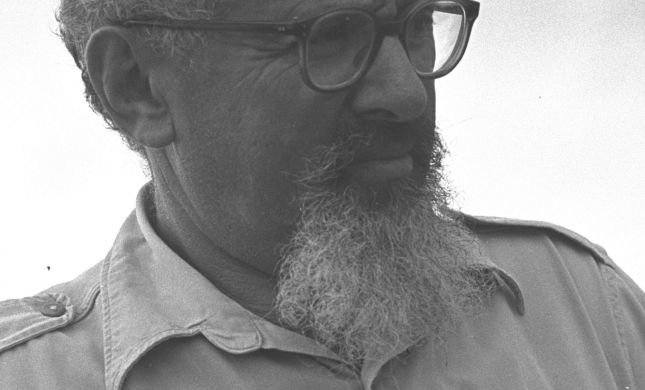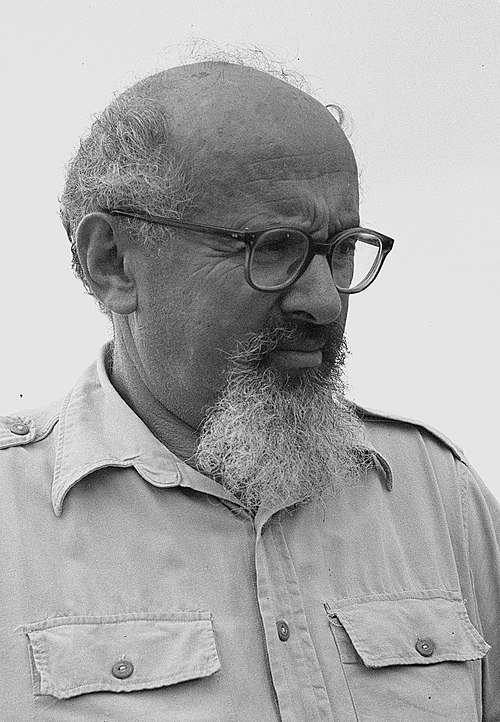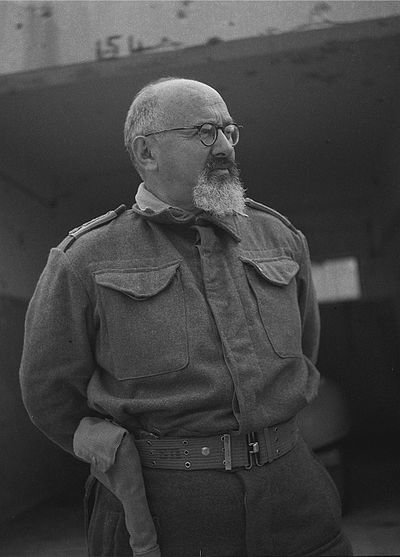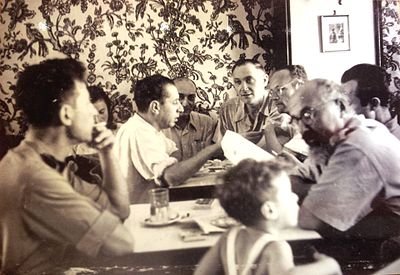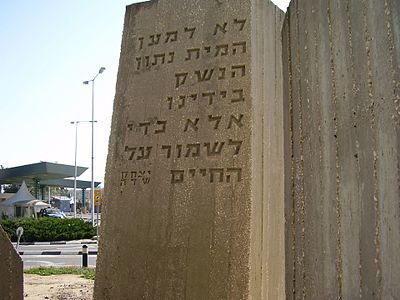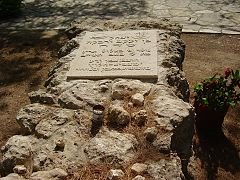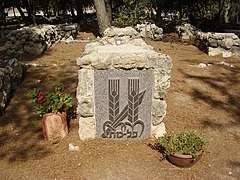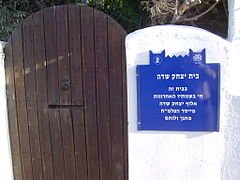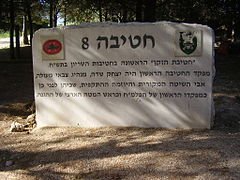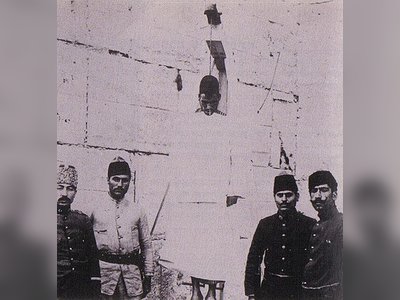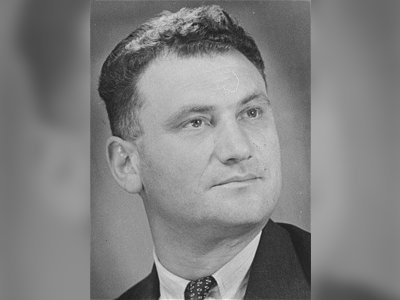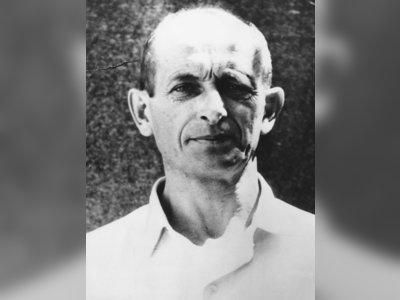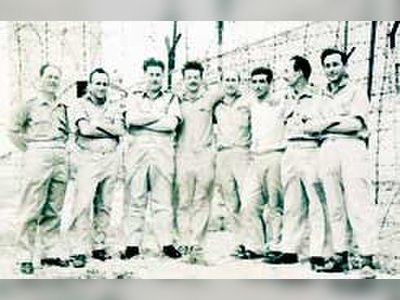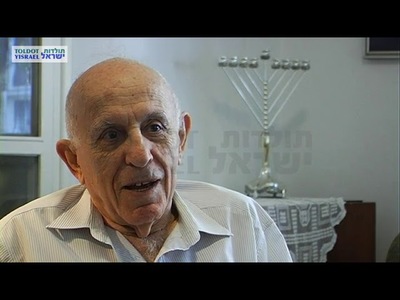Isaac Sadeh: A Leader of Valor and Vision
Isaac Sadeh, also known as "The Elder," was a prominent figure in the history of Israel, celebrated for his role as a commander, strategist, leader, educator, poet, and Jewish scholar. He held key positions in various pivotal movements and organizations throughout his life, leaving an indelible mark on the development of Israel.
Born on August 10, 1890, in Lublin, then part of the Russian Empire (later Poland), as Isaac Landberg, he hailed from a distinguished lineage. His mother, Rebekah, was the daughter of Rabbi Shneur Zalman Perdekin, a prominent rabbi in Lublin. In his youth, Sadeh studied under Rabbi Hillel Zeitlin and later served in the ranks of the Russian Imperial Army during World War I, earning accolades for his courage and eventually rising to the rank of platoon commander.
In 1917, Sadeh joined the Socialist-Revolutionary Party and became acquainted with Yosef Trumpeldor. In 1918, he commenced studies in history and philology at the University of Tver in Simferopol. However, he abandoned his studies shortly thereafter to enlist in the Red Army and fight in the Russian Civil War.
In 1920, disillusioned by the extreme ideologies of the Red Army, Sadeh switched sides and joined the White Army led by Pyotr Wrangel. Nevertheless, he faced anti-Semitic sentiments among Russian monarchists. Upon learning of Trumpeldor's death in the Battle of Tel Hai, Sadeh decided to leave Russia and immigrate to the land of Israel.
In the land of Israel, Sadeh played a pivotal role in founding the Gdud HaAvoda (Labor Battalion). Though he served as its leader, he could not prevent its dissolution due to ideological differences and challenges within the commune. Gdud HaAvoda disbanded in 1926 due to disagreements over the compatibility of Zionism and socialism. Subsequently, Sadeh worked for a period at Pinhas Rutenberg's electric station in Naharayim and in the quarries of Atlit. He was a founder of the sports association "Hapoel" as part of the Workers' Federation.
Sadeh joined the Haganah organization and, in 1921, led the first officer training course of the organization, held in Kfar Giladi. During the Great Arab Revolt (1936-1938), he emerged as a distinguished and unique commander. In Jerusalem, he established "The Nomad," a unit tasked with infiltrating enemy bases and pioneered the tactic of "going beyond the border," shifting the defense struggle to the enemy's villages. In late 1936, he commanded the immigration to Migdal Tzedek, establishing a stronghold in the Arab-infested surroundings that challenged Jewish settlement.
In the summer of 1937, he established the Field Companies (Palmachot Sadeh), leading these specialized units on various missions. Among his responsibilities was leading the immigration to Kibbutz Degania in 1938. He became the first Chief of General Staff (CGS) of the Haganah in 1941.
In 1941, during World War II, he was tasked with forming the Palmach, an elite fighting force, and became its first commander. He transformed the Palmach from a small unit into a significant military force under the Haganah umbrella. In 1942, he developed a comprehensive defense plan called "Metzada on the Carmel," in anticipation of a potential Nazi invasion. In 1945, he assumed responsibility for all combat operations of the Haganah. In that same year, he led the Jewish underground movement alongside members of Etzel and Lehi against the British Mandate authorities.
As part of the policy of cooperation between the Jewish settlement and the British at the outset of World War II, Sadeh was tasked with overseeing the military aspect of the partnership, with David HaCohen handling diplomatic coordination. However, Sadeh grew increasingly frustrated with the British, and his focus shifted towards military operations and individual actions within the Palmach, rather than a broader strategic and organizational perspective.
He also clashed with Yitzhak Rabin after Rabin advocated for ceasing the armed struggle against the British and prioritizing a political solution. In 1946, Sadeh wrote in the "Oz" newspaper of the Labor Unity Movement, "Even for me, there are limits. There are things that not even the Zionist Congress can compel me to do. These things are three: no defense of the defense, no defense of immigration, no defense of settlement. A Zionist leadership that commands such things is not a leadership I can follow."
Ben-Gurion considered this statement a challenge that could not be ignored. He appointed Israel Galili as the head of the Haganah General Staff and pressured Yaakov Dori to return from his mission to the United States and resume his role as Chief of the General Staff (CGS). In June 1947, Dori resumed the CGS position, and Sadeh was left without an active role.
When the Israel Defense Forces (IDF) was established, Sadeh was considered for command of the Givati Brigade, but Ben-Gurion vehemently opposed this appointment. Galili threatened to resign if Sadeh was not given the position, but the crisis ended with Sadeh withdrawing his candidacy. Instead, Joshua Globerman was appointed, but he tragically died a week later, and David Shaltiel took his place.
Sadeh was appointed as the "Military Advisor to Ben-Gurion," a position with no real authority. Additionally, he served as the commander of the Samson Foxes (Shimshonim), the transportation service of the Haganah, responsible for smuggling arms and supplies.
In April 1948, Sadeh was assigned to command the defense of Kibbutz Mishmar HaEmek. The Arab forces, under Fawzi al-Qawuqji, sought to control the kibbutz to secure the road to Haifa and cut off northern Israel. In the Battle of Mishmar HaEmek, Sadeh led a determined defense against the numerically superior enemy forces.
On April 19, 1948, Sadeh was appointed to lead Operation Yiftach, aimed at securing the Jerusalem area. Under his command, the operation included the Harel Brigade under Yitzhak Rabin and the Etzioni Brigade under David Shaltiel. On April 27, Sadeh resigned from the Yiftach command due to disagreements and inefficiencies among its commanders, leaving Jerusalem.
During the establishment of the IDF, Sadeh was promoted to the rank of Aluf (Brigadier General) and initiated the formation of the first reconnaissance unit, Brigade 8 (Gdud 8), serving as its commander. Brigade 8 played a vital role in Operation Dani, which resulted in the capture of Lod and Ramle. Towards the end of 1948, Sadeh served in the southern sector, under the command of Yigal Allon, who was his former student and deputy in the Palmach. After the failed attempts to capture Faluja, Sadeh commanded the eighth and successful attempt to capture the strategic position of Iraq Suwaydan, which threatened the nearby kibbutzim.
Following the 1948 Arab-Israeli War, Sadeh retired from the IDF due to health problems. However, his influence extended beyond his military career. He was a prolific writer and poet, known for his Hebrew literary contributions. His works included poetry, prose, and essays that explored themes of Jewish identity, nationalism, and the human condition. He was a proponent of the "Hebrew labor" movement, emphasizing the importance of physical labor in building a strong and independent Jewish homeland.
Isaac Sadeh passed away on August 20, 1952, at the age of 62. His legacy continues to inspire generations of Israelis and Jews worldwide. His contributions to the military, literature, and Zionist ideology have left an indelible mark on the history of Israel, and he is remembered as a leader of valor and vision.
- יצחק שדה – ויקיפדיהhe.wikipedia.org
